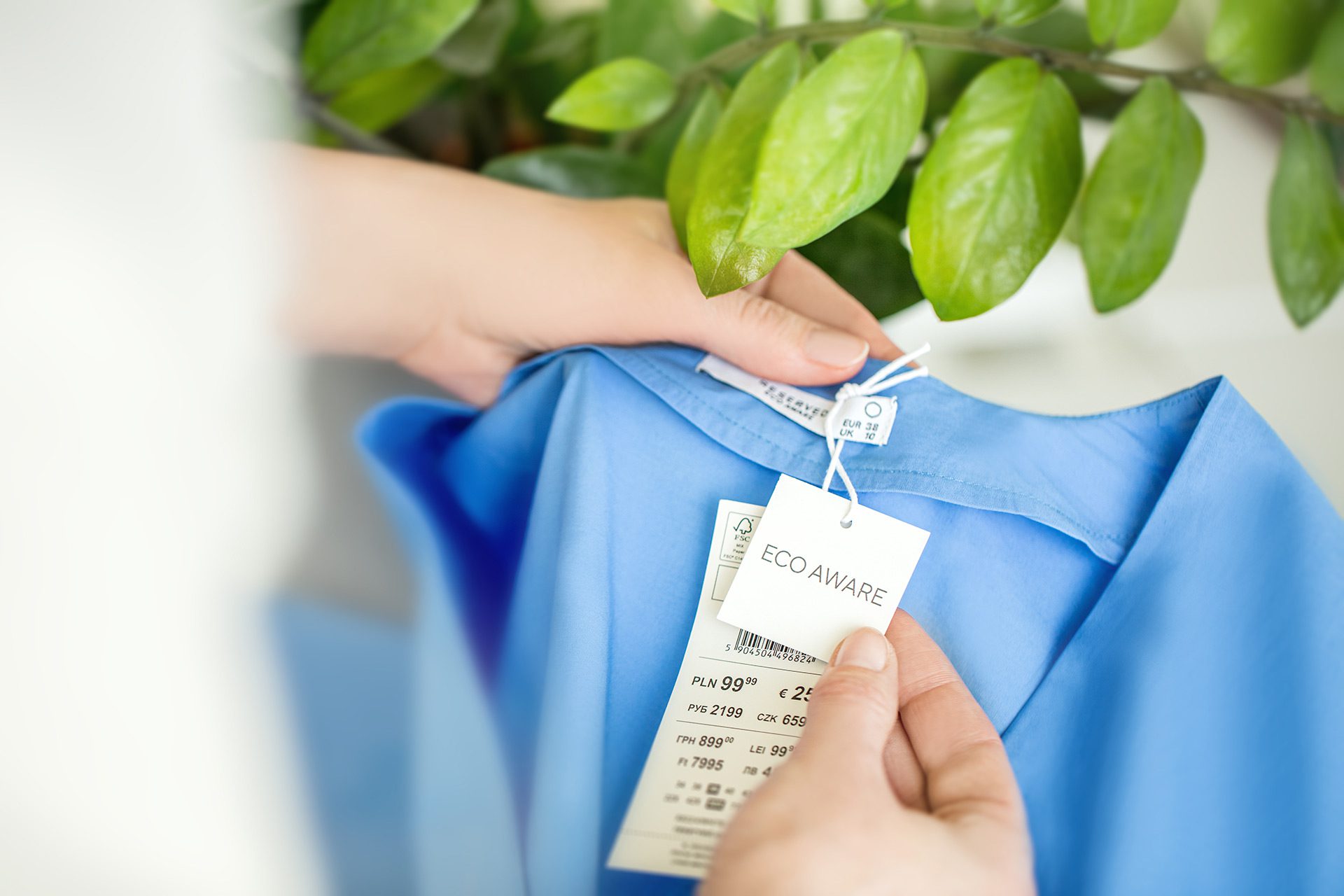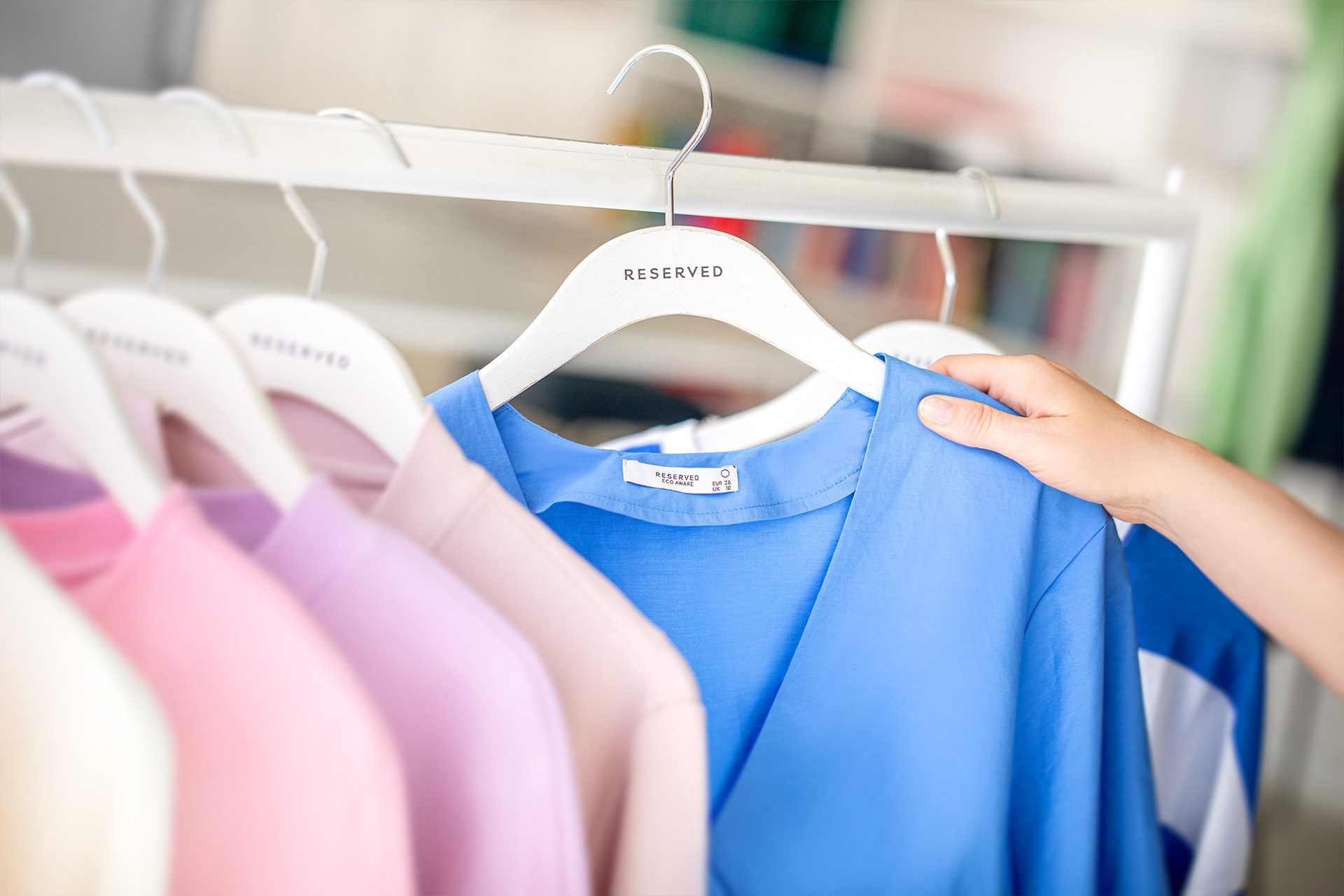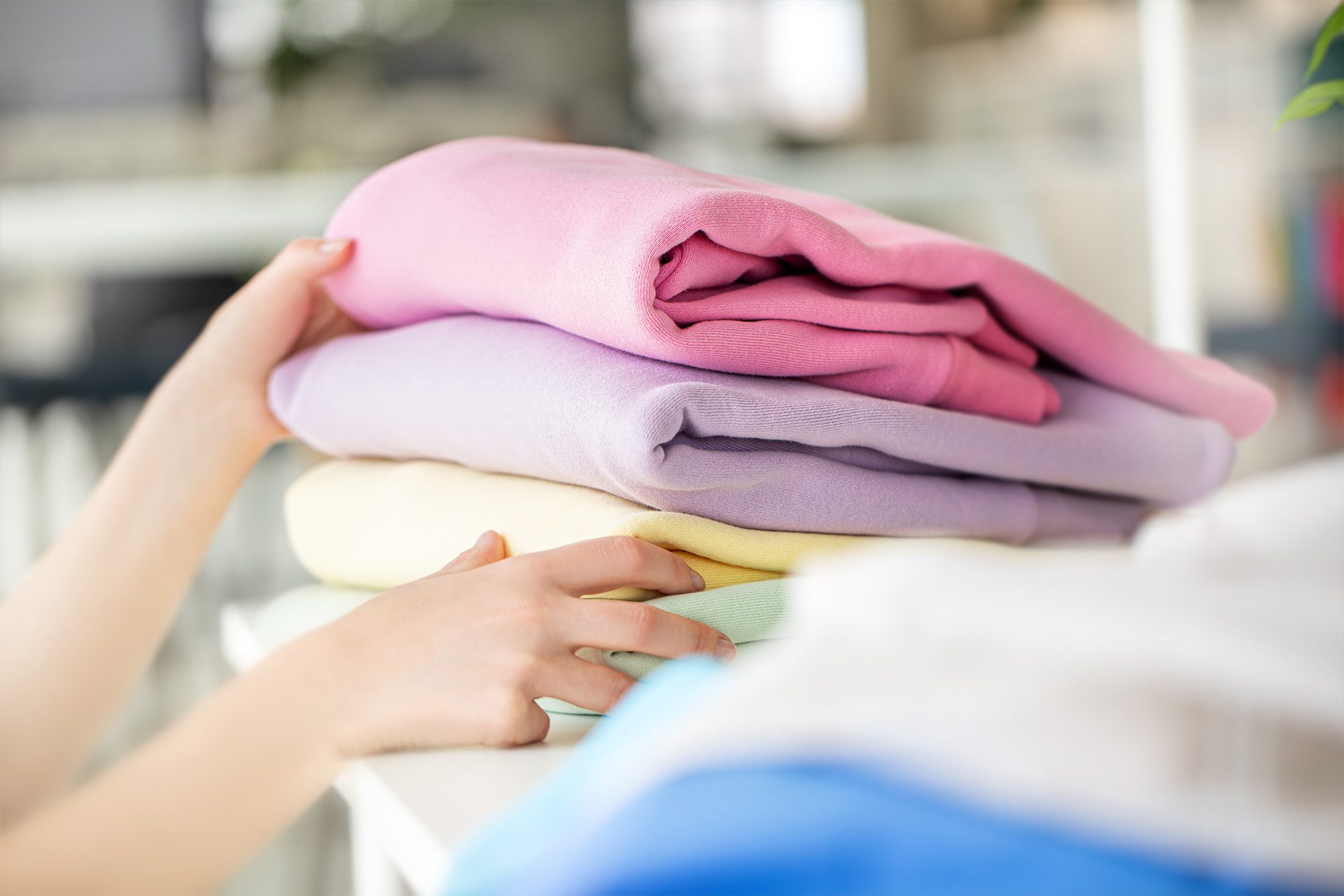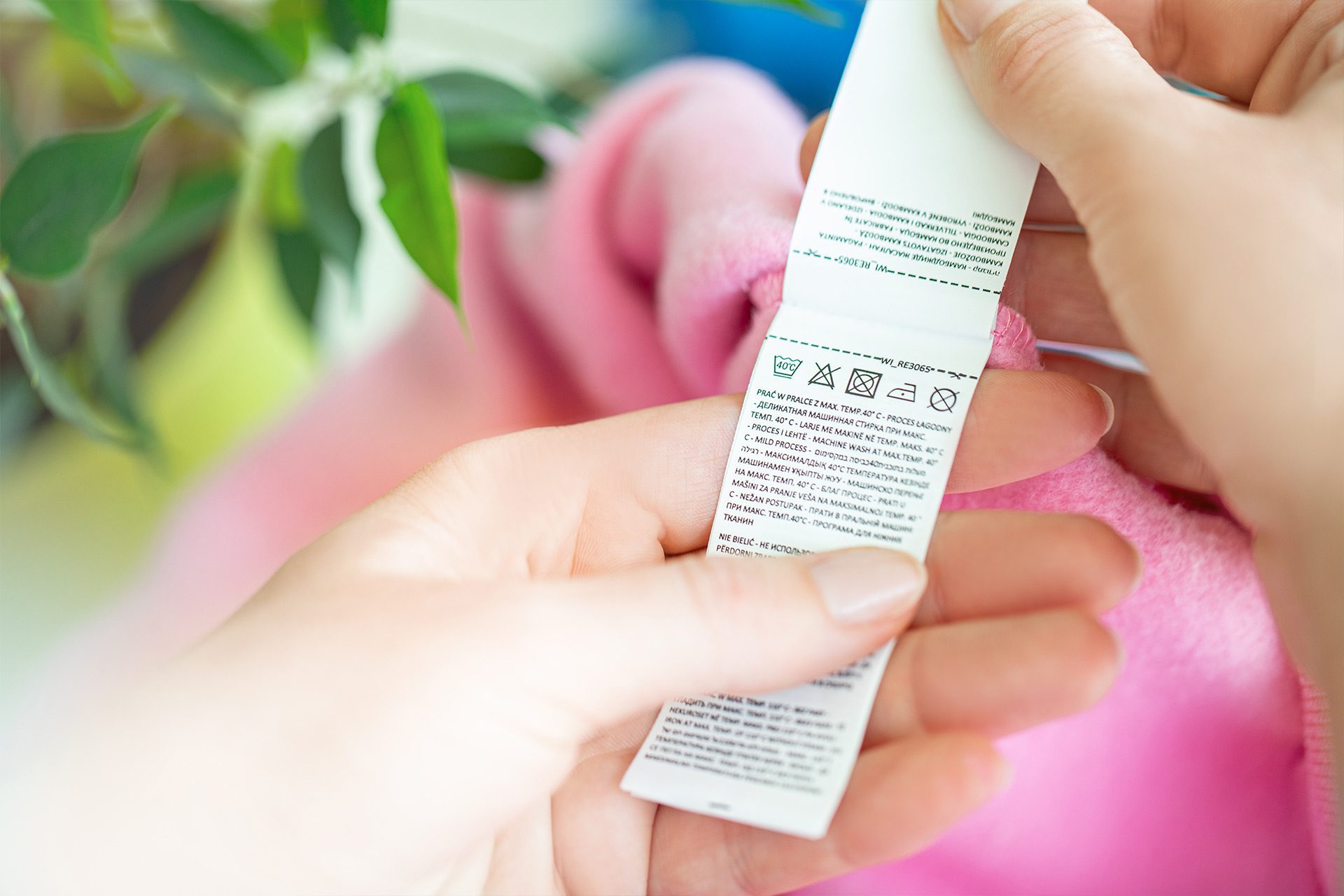“Look after your clothes. Read. Check. Care”. LPP launches a new educational campaign on how to take care of clothing

The awareness of the environmental impact of our everyday clothing care decisions is growing; however, as shown by a study conducted by ARC Rynek i Opinia commissioned by LPP, the idea of sustainable fashion is still not a common concept for many people. In fact, as experts confirm1, the conscious use of clothes in a way that ensures preservation of their appearance and original properties extends their life and may have a tangible impact on the environment. The new educational campaign by LPP called “Look after your clothes” informs about the way our habits not only can affect our clothes, but also save water, energy and cut CO2 emissions to the atmosphere.
The idea of sustainable fashion has been inherent in LPP’s strategy for many years and the activities limiting the company’s environmental impact are carried out in several areas of its operations. On the other hand, the company from Gdańsk, as the leader in the Polish clothing industry, feeling responsible for the clothes it produces even after they reach its customers, decided to check how Poles take care of their clothes and what habits they have in this respect. The survey conducted for to this end in cooperation with ARC Rynek i Opinia provided the company not only with up-to-date data concerning the ways in which clothes are used, but also with information on Poles’ awareness as regards caring for clothes. The survey findings confirmed that although as consumers we do have a general knowledge of environmentally-friendly activities, still,
• a considerable group (30%) does not know what sustainable fashion is, and a large group of people (17%) still throws away clothes that are no longer worn,
• a vast majority (73%) associate the term “ecology” with waste segregation, while only 4% of the respondents associate it with taking care of what they own,
• nearly half of the respondents cut off the care labels on their clothes, while as many as ¾ of the respondents declare that they would be happy to use a QR code, which after scanning would display more information about the clothes,
• we declare that we know how much detergent we need for washing, however, to a large extent we measure it “roughly”,
• many of us also do not sort the laundry before ironing, which causes the clothes to wear out faster,
• a large group of people do not really know how to wash, dry or iron clothes properly, but they feel the need to learn more.
These and many other conclusions from the survey were the basis for LPP to develop practical tips and tools, which became the backbone of the educational campaign launched by the company under the slogan “Look after your clothes. Read. Check. Care”.
– As a company aware of its role in creating environmentally friendly fashion, we do realise how much needs to be done to continuously raise the ecological awareness of consumers. Our collections are at the heart of our business, but we know that our role does not end with selling them. We feel just as responsible for increasing the proportion of environmentally friendly products in our brands’ portfolios as we do for promoting a conscious approach to clothing care among our customers. This is the overarching aim of our new “Look after your clothes” campaign. As the survey showed, many of us are still unaware that by caring for our clothes in the right way, not only can we extend their life, save money but also reduce our carbon footprint. That’s why we hope that the tools and tips proposed as part of the project will help us change that and help our customers make informed decisions. By implementing our campaign, we want to show that everyday habits concerning clothes care also impact the future of our planet – says Dorota Jankowska-Tomków, Procurement and ESG Director at LPP.
The “Look after your clothes” campaign is LPP’s response to the need to promote the conscious use of clothes in a way that extends their life. The website www.dbajoubranie.pl, developed as part of the campaign, and all the practical advice and tools it contains, such as a chatbot or emission calculator, are to help all of us – consumers – understand that changing our habits, not only with regard to washing, but also drying, ironing and storing clothes, contributes to reducing their wear and tear. It also benefits the household budget and, in the long run, the environment.
The campaign by LPP is supported by experts from the Łódz Institute of Technology (Łukasiewicz Research Network), the Sustainable Development Institute at Łazarski University and the consulting firm Deloitte. Ambassadors, who support the campaign by identifying themselves with the values inscribed in it, have also been invited to the project.
Marta Karwacka, Senior Manager Sustainability Consulting Central Europe, Deloitte, commented on the study, explaining why it is so important to engage consumers and understand how individual decisions or behaviours can affect change: – The global economy is facing huge challenges. The ones relating to climate change require systemic decisions and multidimensional solutions involving, among other things, transformation of corporate business models, new regulations, as well as changing consumer attitudes. We already know that this economic revolution requires the involvement of many parties, and consumers – in terms of their activism and environmental awareness – play a key role. Undertaking initiatives such as the “Look after your clothes” campaign will certainly change the way many people, mainly those who have not been interested in sustainable fashion and responsible consumption, perceive their role in this revolution.
Agnieszka Oleksyn-Wajda, Director of the Institute of Sustainable Development and Head of Postgraduate Studies in Environmental Protection Law at Lazarski University’s Center for Postgraduate Studies, notes that the importance lies not only in well thought-out business strategies that include appropriate supply chains, low-carbon efforts and closed-loop systems, but also many other activities. – One of the 17 sustainable development goals presented in the 2030 Agenda is responsible production and consumption. Therefore, also in this area a change in our habits is welcome. It is important, on the one hand, to make well-informed purchases, and on the other hand, to take appropriate care of clothes, including using household methods. Proper clothing maintenance can reduce the negative impact on the environment – emphasises Agnieszka Oleksyn-Wajda.
Representatives of the Łukasiewicz Research Network – Łódz Institute of Technology, supporting LPP in the preparation of the campaign, in their comment on the survey findings confirm that every small step matters and it is worth making the effort and educating customers that their purchasing choices when it comes to clothing and proper care for clothes help to counteract climate change – Customers’ purchasing decisions in relation to clothing are influenced primarily by economic considerations. According to the report, as many as 85% of respondents pay attention to the price, and only 16% to the production of the product in line with environmentally-friendly processes. This, in turn, confirms that there is still a lot to be done in terms of raising consumers’ ecological awareness and building a system of incentives supporting the purchase of clothes produced in an environmentally-friendly way – comments dr inż. Anetta Walawska, Chief Science and Research Specialist, Centre for Closed Circuit Economy.
The “Look after your clothes” campaign complements the commitments made by LPP to reducing its environmental impact. Implementing the “For People For Our Planet” sustainable development strategy adopted in 2019, the Polish clothing company is also broadening the scope of its activities by focusing on those areas where it has the chance to achieve ambitious yet realistic goals.
– By gradually increasing the share of more environmentally friendly collections in the offer of our brands, which now constitute 26% of the whole collection, we give customers an opportunity to choose between a standard product and one made in a more sustainable way. On the other hand, we are aware of the important role that we, as a company operating in nearly 40 markets, can play in educating our customers that it is not only the choice of clothes that matters, but also the way they look after them. Washing, drying, ironing and storing clothes, as it turns out, can bring real benefits to the environment, which means to all of us – sums up Dorota Jankowska-Tomków, Procurement and ESG Director at LPP.
Find out more about the campaign and the report from the survey at www.dbajoubranie.pl
1 ARC Rynek i Opinia research report “Pielęgnacja odzieży” [“Taking care of clothing”], February 2022 https://dbajoubranie.pl/raport/
______________________________________________________________________________
LPP is a Polish family business and one of the fastest growing clothing companies in the region of Central and Eastern Europe. For 30 years, it has been successfully operating in Poland and abroad, offering its collections in such prestigious capitals as London, Helsinki or Tel Aviv. LPP SA manages five fashion brands: Reserved, Cropp, House, Mohito, and Sinsay, whose offer is available today in stationary and online stores in nearly 40 markets worldwide. The company has a chain of nearly 1700 stores with the total area of over 1.4 million m2. Based on a global distribution network located in 3 countries, it distributes clothing and accessories to 3 continents every year. LPP also plays an important role as it employs over 24 thousand people in its offices and sales structures in Poland, Europe, Asia, and Africa. The company is listed on the Warsaw Stock Exchange in the WIG20 index and belongs to the prestigious MSCI Poland index.





